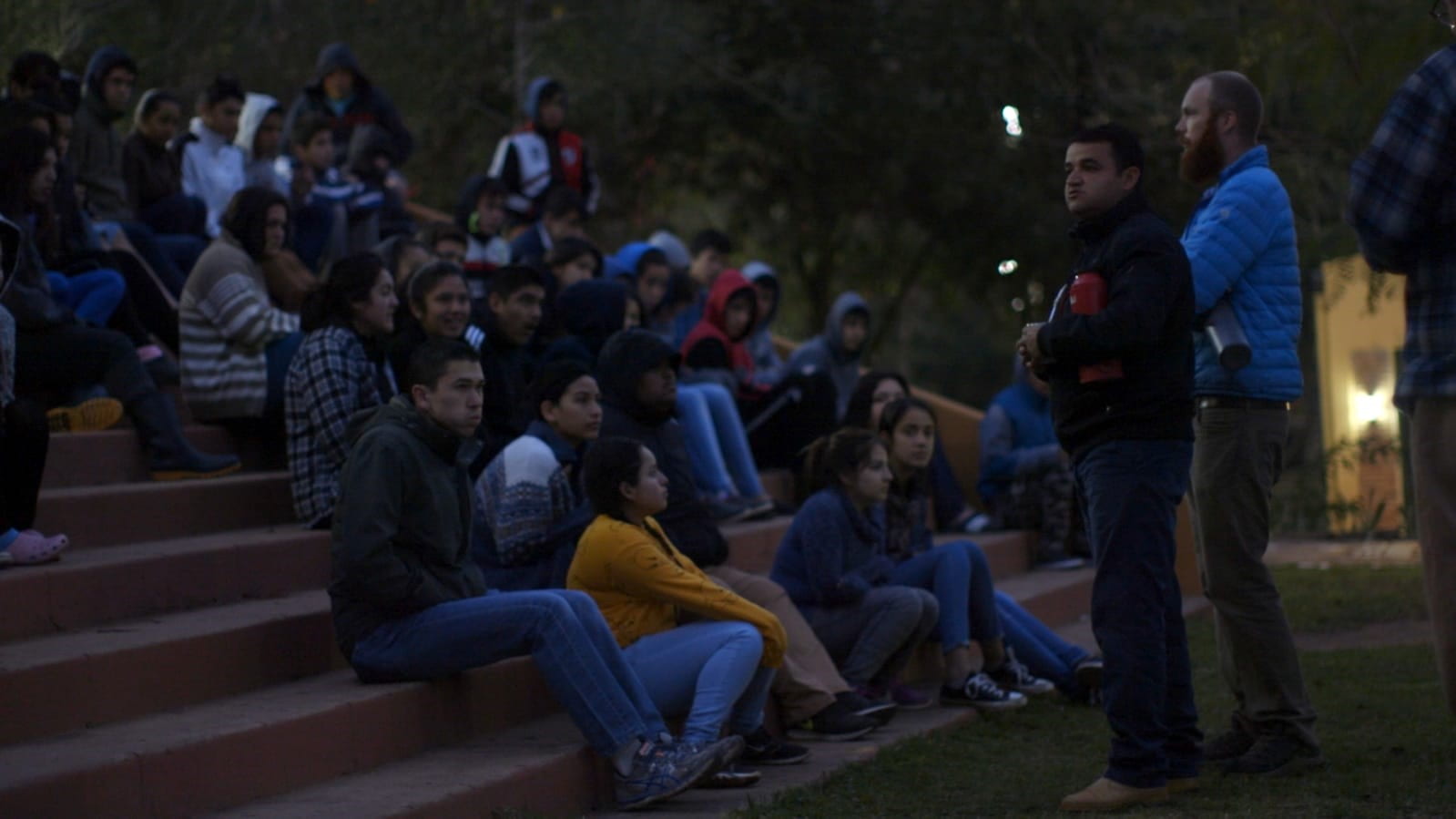Global Service Scholar: Sergio Cervantes
Country: Paraguay
Days at the Escuela Agricola de San Francisco are long yet fulfilling and full of different tasks. My experience as an intern starts off in my cabin Jazmin, the boys cabin. Days start bright and early at 5:45 a.m. at the sound of a bell. This bell prompts students and interns such as ourselves to start getting ready for the day. We then meet the students at the stairs of the church to start assigning groups for cleanup promptly at 6 a.m.
Once assigned into groups with our buddies, we go to our designated areas for cleanup. I usually participate in picking up inorganic or organic trash around the boy’s student dormitory section of the agriculture school. Luckily it doesn’t last the whole hour dedicated to clean up, so I am able to chat with students and get a feel of what everyone is doing for the day.
Early mornings were really hard to get adjusted to. After the first week, it got a little easier and soon enough wasn’t much of a hassle anymore. After clean up, we then go to our designated campo work. My favorite campo work to date has been with the goats. I get to participate in rounding up the baby goats into their separate area, as well as moving the other goats to graze. It is a calming experience, and the talks I have with one of the professors named Jacinto are rewarding and eye opening. Campo work usually lasts until 11 a.m., which is followed by a half-hour break. We then move on to lunch at the hotel. Around 1 p.m. is when we get to go into our project groups.
The Global Service Scholars are divided into three groups, consisting of base line construction, pedagogy technique implementation, and socio-emotional work. My group is in charge of working with professors and teachers in constructing a baseline assessment to see what level the students are at academically at the agriculture school. Our work will determine if they are ready to go to university.
My work usually consists of speaking to students in the “tercer curso,” or third course, which are equivalent to seniors in high school. I have had the opportunity to interview a few students to get an understanding of what they’d like to after they graduate. Once we got their responses, then we were able to narrow down what majors and fields of study these students would want to pursue. By doing so, we were able to construct the test that would determine if they have the skills and or understanding of certain materials to succeed in their introduction courses and in college in general.
Besides the main project we work on, I also have the opportunity to do a “TIC club” or an information technology club. We have covered subjects like Google drive, and Google suite. We have shown students how to send formal emails using Gmail and how to navigate Google docs. The TIC club provides me a more intimate setting to work with students one on one. It helps to work with students in different settings to really get to know them. By working in both campo and a classroom setting, you really understand their work ethic and perseverance. The students at the Escuela Agricola, are the most hard-working students I’ve ever seen.
After campo we usually have time to ourselves to either rest or interact with students, by playing on the field, playing games, or just chatting around. About 7:30 p.m. we get to have dinner. Usually after dinner we get to go into the other clubs and see what the other Global Service Scholars are doing. I usually go to the socio-emotional group club call “Club bien estar”. There they talk about subjects like sexual education, bullying, and machismo. It’s so nice to hear the different stories and perspectives of students on these topics. Our days usually end around 9 p.m. when we all walk back to our cabins to shower and rest to prepare for the early morning next day.

